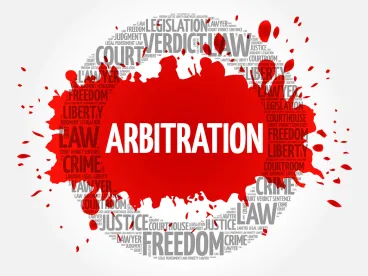OVERVIEW
In two opinions—one published and one unpublished—the Ninth Circuit overturned prior precedent and held that a Plan amendment requiring arbitration meant that an individual had to arbitrate, on an individual basis, purported class claims alleging imprudent and disloyal management of 401(k) investments. This decision, although unpublished, provides support for plans wishing to add binding arbitration provisions that apply to ERISA 502(a)(2) claims.
IN DEPTH
In Dorman v. The Charles Schwab Corp., 2019 WL 3926990 (9th Cir., Aug. 20, 2019), and 2019 WL 3936944 (9th Cir., Aug. 20, 2019), the Ninth Circuit reversed the district court’s decision that refused to compel arbitration of ERISA claims. Plaintiff Dorman sued alleged fiduciaries of the Charles Schwab & Co., Inc. 401(k) plan, alleging the plan included underperforming Schwab investment options. The defendants asked the district court to compel arbitration pursuant to an arbitration provision in the plan document, but the district court denied the motion. The defendants filed an interlocutory appeal.
In the first of two opinions, the Ninth Circuit addressed the legal issue of whether ERISA claims can be subject to mandatory arbitration. The Ninth Circuit previously decided Amaro v. Continental Can Co., 724 F.2d 747 (9th Cir. 1984), in which it held that ERISA claims were not arbitrable. But the Supreme Court’s decision in Shearson/Am. Express Inc. v. McMahon, 482 U.S. 220 (1987) established that arbitrators can interpret and apply federal statutes. Amaro was no longer good law, and ERISA claims could be subject to arbitration.
In the second opinion, which was unpublished and is not binding precedent, the Ninth Circuit considered and rejected each reason why the district court refused to compel arbitration. First, the district court found that the arbitration provision was added after Dorman ended his employment and was no longer a participant. That was wrong, however, because the record reflected that Dorman actually participated for nearly a year while the provision was in effect.
Second, the district court questioned whether the arbitration provision applied to the particular claims. The provision required arbitration of any claim, dispute, or breach arising out of or related to the Plan, and included a waiver of class or collective claims. Dorman brought particular types of ERISA claims: ERISA § 502(a)(2) claims, which are claims on behalf of the Plan itself for Plan losses. The district court thought the Plan did not consent, in part because the amendment was added by Plan fiduciaries after they had been sued. The Ninth Circuit disagreed, finding that ERISA § 502(a)(2) claims belong to the Plan, not Dorman, and the Plan expressly agreed to arbitrate by way of a properly enacted amendment to the Plan document.
Third, the district court also questioned the scope of the arbitration provision, but the Ninth Circuit found the provision broad enough to encompass his ERISA claims. The claims arise out of and relate to the Plan, because they were asserted under ERISA and alleged breaches of duties to the Plan.
Fourth, the district court determined that the arbitration provision was barred by ERISA § 410(a), which precludes exculpatory agreements that relieve fiduciaries of responsibility. The Ninth Circuit disagreed, noting that the arbitration provision does not insulate the fiduciaries from liability, but merely selects a particular forum for litigating questions of liability.
Fifth, the district court held that class-action waivers violated the NLRA and were unenforceable. That conclusion, however, was expressly rejected by the Supreme Court in a decision issued after the district court’s ruling. Epic Sys. Corp. v. Lewis, 138 S. Ct. 1612, 1621 (2018).
Finally, the Ninth Circuit explained that the class-waiver language was binding on Dorman. He could only pursue his individual losses in arbitration, even though the ERISA § 502(a)(2) claim was on behalf of the Plan.
What this Means: Although all federal Circuit Courts have held that ERISA arbitration provisions may be enforceable, there are some unanswered questions about precisely whom they bind and what claims must be arbitrated. Arbitration provisions should, however, bind those who are participating when the provision is added to a plan, and a properly drafted provision should be broad enough to include ERISA § 502(a)(2) claims brought on behalf of a plan. Class-waiver language also can limit the scope of a dispute to only alleged losses to an individual’s account.
This decision, although unpublished, provides support for plans wishing to add binding arbitration provisions that apply to ERISA 502(a)(2) claims.



 />i
/>i
